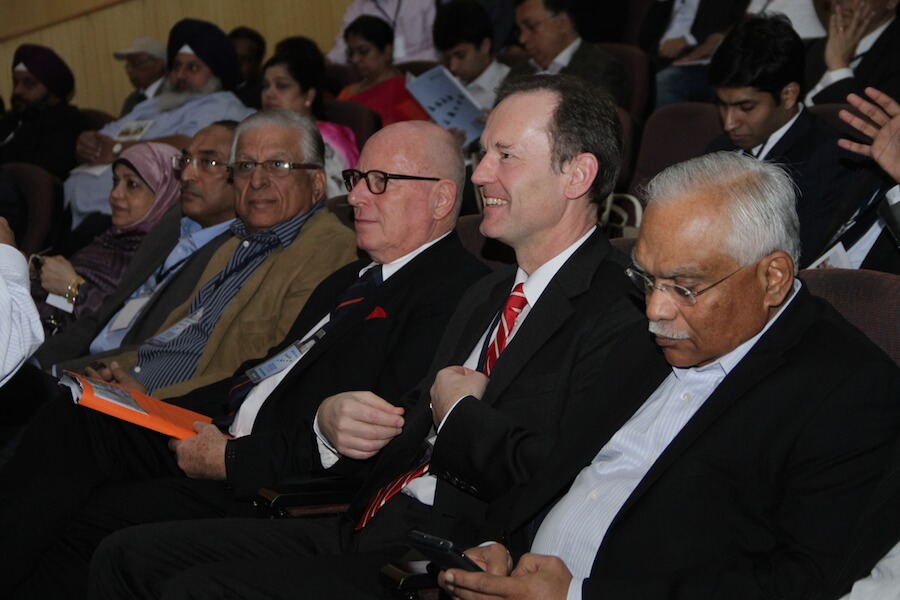
The Thomas Schmidheiny Centre for Family Enterprise, Indian School of Business will be organizing the Sixth Asian Invitational Conference on Family Business from 3 – 5 February 2017. The conference theme is ‘Competitiveness in Family Business.’ On the first day of the conference academicians will present their research papers and case studies on family business. The business conference is scheduled on the second and the third day, where prominent family business leaders and experts will share their experiences and valuable advice on diverse themes relevant to family business. The conference is an initiative of the Centre to sensitize and build capabilities in family businesses across Asia. It also offers a platform to network, reflect and share ideas and experiences among delegates. Conference speakers will share experiences in building successful family businesses by always ensuring business competitiveness and healthy and happy family relationships. This is a unique conference in Asia that offers great value to family businesses and is normally attended by over 350 delegates.
In anticipation of the conference, Tharawat Magazine spoke with Professor Kavil Ramachandran, Professor and Executive Director of the Thomas Schmidheiny Centre for Family Enterprise, about the competitiveness of Indian family businesses and what the future holds for those businesses.
Why is the theme “Competitiveness in Family Business”, and what are your thoughts on the competitiveness of family businesses in India?
Business environment across the globe is increasingly becoming more competitive. Rapid technological changes and disruptive innovations are playing the role of catalysts accelerating this process. Family firms face competitive challenges on multiple fronts. While on one hand, they need to gear up their systems and processes and adapt to the rapidly changing business environment, on the other they also need to deal with the evolving dynamics on family front (like rising aspirations of next generation members and guarding themselves from internal frictions). Indian family firms need to prepare themselves to face growing competition by establishing new-age mechanisms for business and family governance.
What are some of the major challenges facing Indian family businesses today?
Indian family businesses face several challenges today. For instance, managing operational complexities that come with business growth is a key concern. Yet another challenge is to improve mechanisms of corporate governance. Preparing the next generation members to take up responsibility in business is another key area of importance to family business. Family governance and conflict management requires much more attention as several family businesses are to go through an inter-generational leadership transitions in the coming decade or so. Overall, the biggest challenge is to transform the family businesses into long-lasting, successful institutions.
What do you think is unique about Indian family businesses in comparison to those from other nations/regions?
A unique feature about Indian family businesses is the high degree of family togetherness that keeps everyone bonded. India has had a long tradition of joint families. Though in modern times joint families have given way to single family structure, yet the emotional bonding among the family members continues to be very strong. This high degree of family cohesion gives a distinct advantage to Indian family firms. Another unique feature of Indian firms is their frugal and agile way of managing business operations, which gives them a distinct competitive edge.
What is the primary focus of research of the Thomas Schmidheiny Centre for Family Enterprise?
The Thomas Schmidheiny Centre for Family Enterprise at the ISB conducts and promotes cutting-edge research on three themes in family business: Governance, Professionalization and Strategy. Within these three themes, the Centre’s research areas include: best practices of family enterprise governance & Institutionalization, leadership, professionalization of business operations and governance, family governance, entrepreneurship and innovation in family business, business communities of India, family philanthropy, sustainability and wealth management. Recent research studies conducted by the centre focus on family togetherness, next generation leadership development, collective leadership and board governance.
What are some standout trends in family business research and case studies this year?
Several interesting insights emerged from research and case studies conducted by our Centre in the past one year. For instance, a study on next generation leadership development found that gaining work experience outside the family business contributed significantly to the next generation leader’s future success. Another study on family togetherness found that the degree of togetherness varies across family members. Though most family members are together for celebrating festivities, fewer are together when it comes to managing business operations. When it comes to matters of inter-generational transfer of wealth or leadership succession the degree of togetherness goes down even further. In another study on family firm growth and survival in India, family firms were found to be more resilient than their non-family peers.
How do you gauge the business environment for Indian family businesses in the upcoming year, in light of the recent currency issues?
As several estimates suggest, in the short-term the demonetization of large denomination currency notes appears to have slowed economic growth. However, family businesses in the organized sector have not been as badly hit as those operating in the informal sector, which had high dependence on cash. The government of India is promoting the use of digital platforms to bring businesses within the gambit of formal economy, which will be definitely beneficial in the long-term. Family firms would do well if they quickly adopt technology platforms for online payment mechanisms. In fact, this is yet another disruptive innovation that would contribute to family business competitiveness.

For details, please visit the conference site http://www.isb.edu/sixthfbconference.









